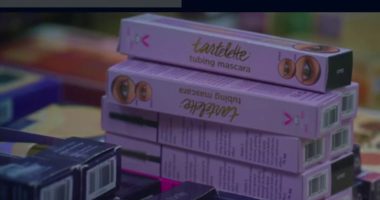The unwritten rituals of home pregnancy tests are known to many: Don’t linger too long in front of the shelf in the drugstore. Hide the box under other items in your basket. Wrap up the used test before throwing it in the trash.
Pregnancy tests have evolved since they first hit aisles in the 1970s, but the anxieties around them have not. Multiple scenarios can bring on varying degrees of disquiet, from bumping into someone you know while furtively buying a test, to feeling alone and bewildered once the result is known.
“There’s so many other experiences and feelings involved, other than the actual peeing on a stick,” said Cynthia Plotch, the co-founder of Get Stix Inc., which does business as Stix.
Stix is part of a new wave of female-founded companies looking to improve the process of buying, taking and disposing of pregnancy tests.
“What we’re seeing in healthcare innovation is startups having the opportunity to start with a blank slate and be much more human in their approach,” said Faye Shneider, associate strategy director at Brooklyn-based branding company Red Antler LLC, which is known for its work on startups and new ventures including Oova, an at-home fertility test.
Many of the new companies are led by founders proficient in e-commerce, but with less experience in consumer health. Stix’s Ms. Plotch and her co-founder, Jamie Norwood, previously worked for the produce-delivery company Hungry Harvest. Lia Diagnostics, which says its product is the first flushable pregnancy test, was founded by advertising executive Bethany Edwards and designer Anna Couturier.
Lia’s test, which went on sale in March, is made from biodegradable paper-based material that Lia says can go in the toilet after use.
Plastic tests that go in the trash are both environmentally less than ideal and indiscreet, Ms. Edwards said: Until the trash goes out, the results can be stumbled upon by others.
Corduroy Enterprises Ltd.’s Ovry, a Canadian startup, sells very thin pregnancy tests directly to customers online. The strip tests arrive in boxes of four or 18 and are thin enough to fold down to the size of a thumbnail and bury in the trash, said Jackie Rhind, Ovry’s founder and managing director.

Next month, Stix will introduce a digital pregnancy test guide including a meditation exercise.
Photo: Stix
Ms. Rhind said she wanted to develop a pregnancy test that was cheaper and easier to procure than many existing products. An Ovry test strip costs as little as 2 Canadian dollars, equivalent to $1.59, roughly $2 less than some drugstores’ low-end tests—and the bulk format allows women to regularly check for pregnancy without having to keep heading to the drugstore, Ms. Rhind said.
New providers have also added privacy measures to their packaging: Lia, for example, offers an “ultra-discreet” box that comes without text or pictures.
Inside the startups’ boxes, large foldout sheets of instructions are giving way to less-clinical presentations. Next month, Stix will introduce a digital guide including animated instructions as well as activities designed to soothe test-takers, such as a meditation exercise and a sudoku puzzle, Ms. Plotch said. Users can also text questions to a hotline after they get results, she added.
Stix, which also sells ovulation tests and pain relief for urinary-tract infections, last year raised a $1.3 million seed round and next week will announce further funding, Ms. Plotch said. Lia has raised more than $5 million, primarily from Pinkubator, an incubator program focused on women’s healthcare.
Ovry’s Ms. Rhind said she has bootstrapped the company so far, but is talking with investors.
“I think women’s health is trendy,” she said. “It’s been acknowledged that it’s been underfunded for so long, the pendulum is swinging in the opposite direction.”
Write to Katie Deighton at [email protected]
Copyright ©2020 Dow Jones & Company, Inc. All Rights Reserved. 87990cbe856818d5eddac44c7b1cdeb8









